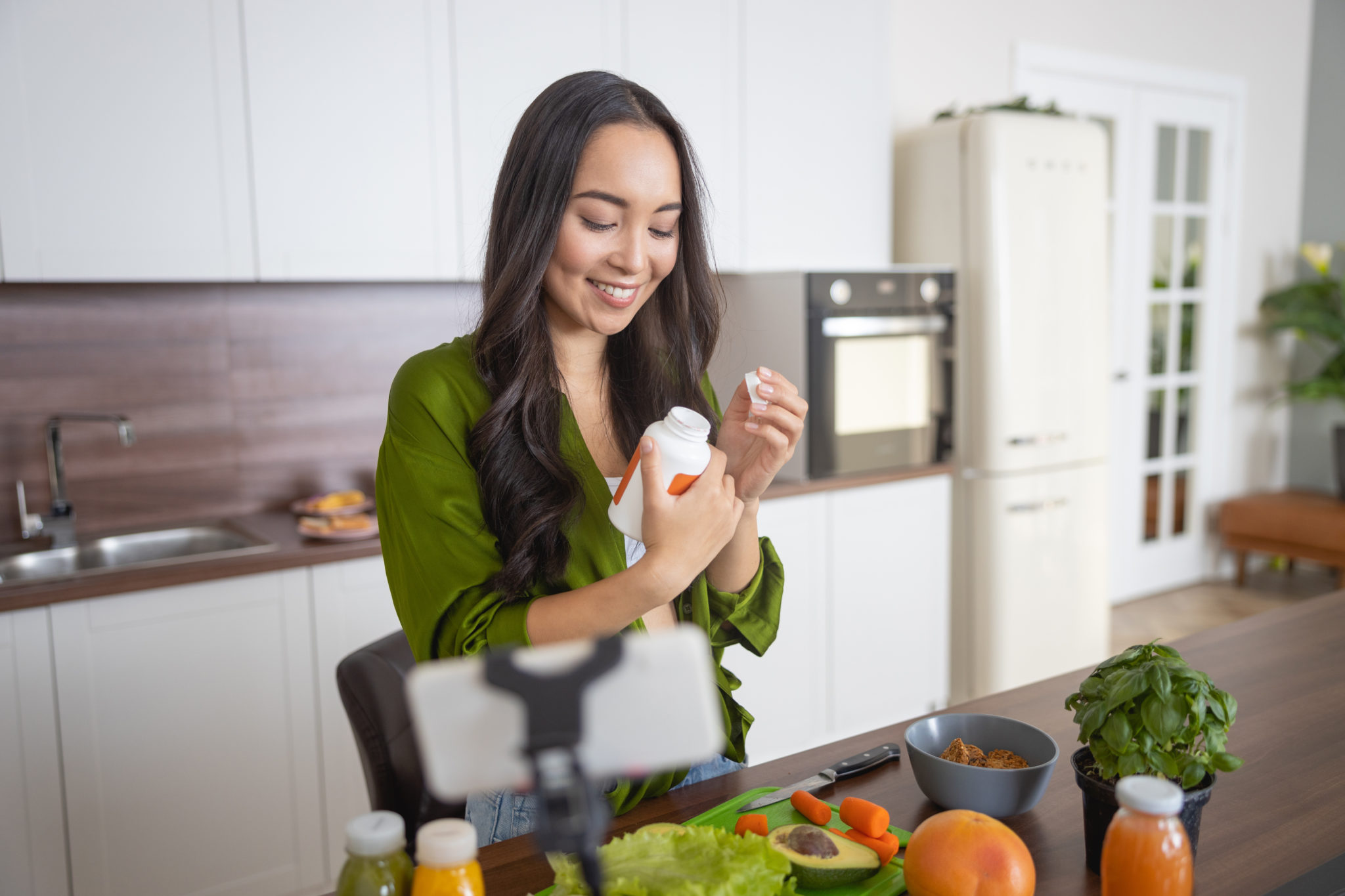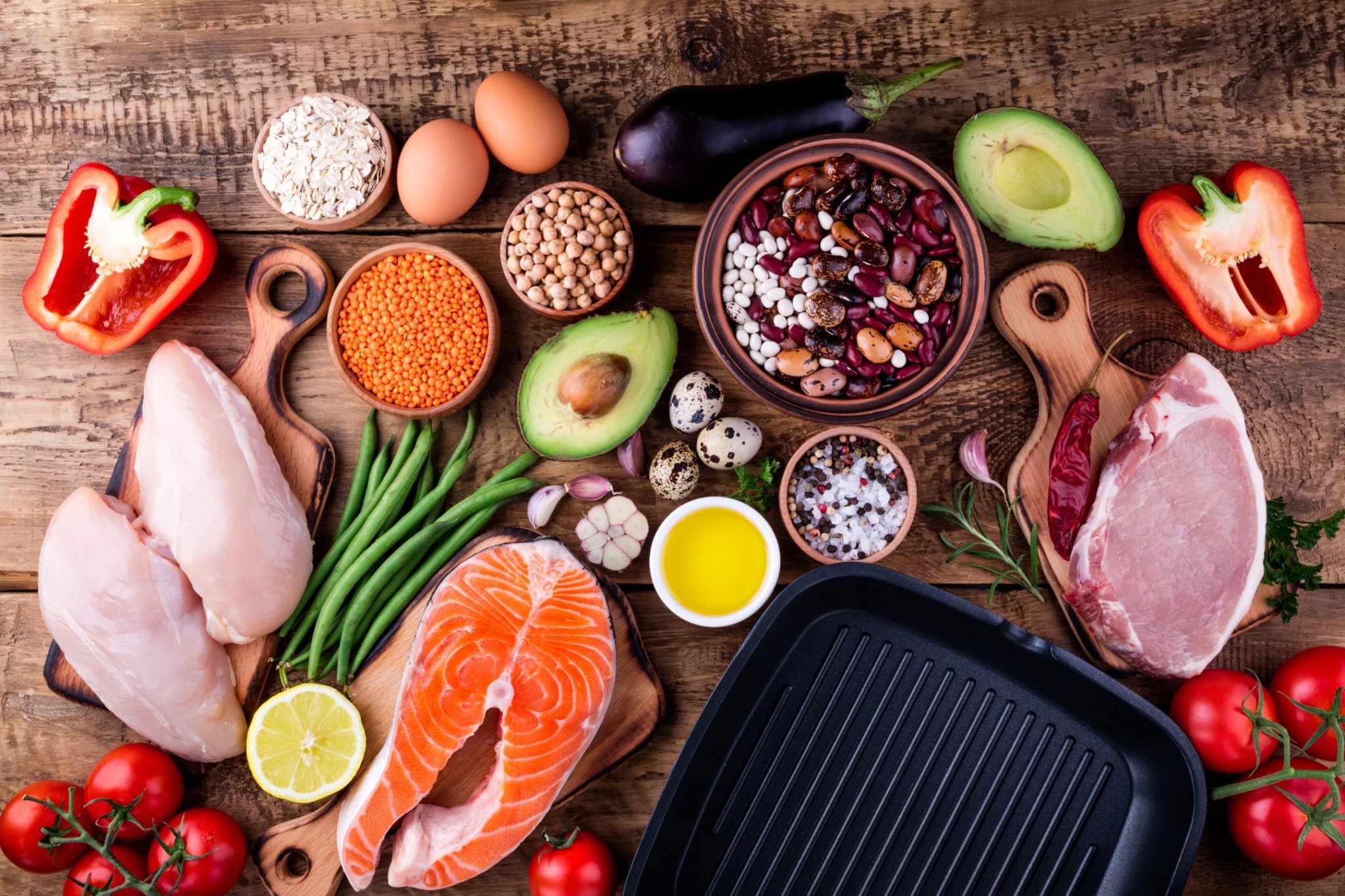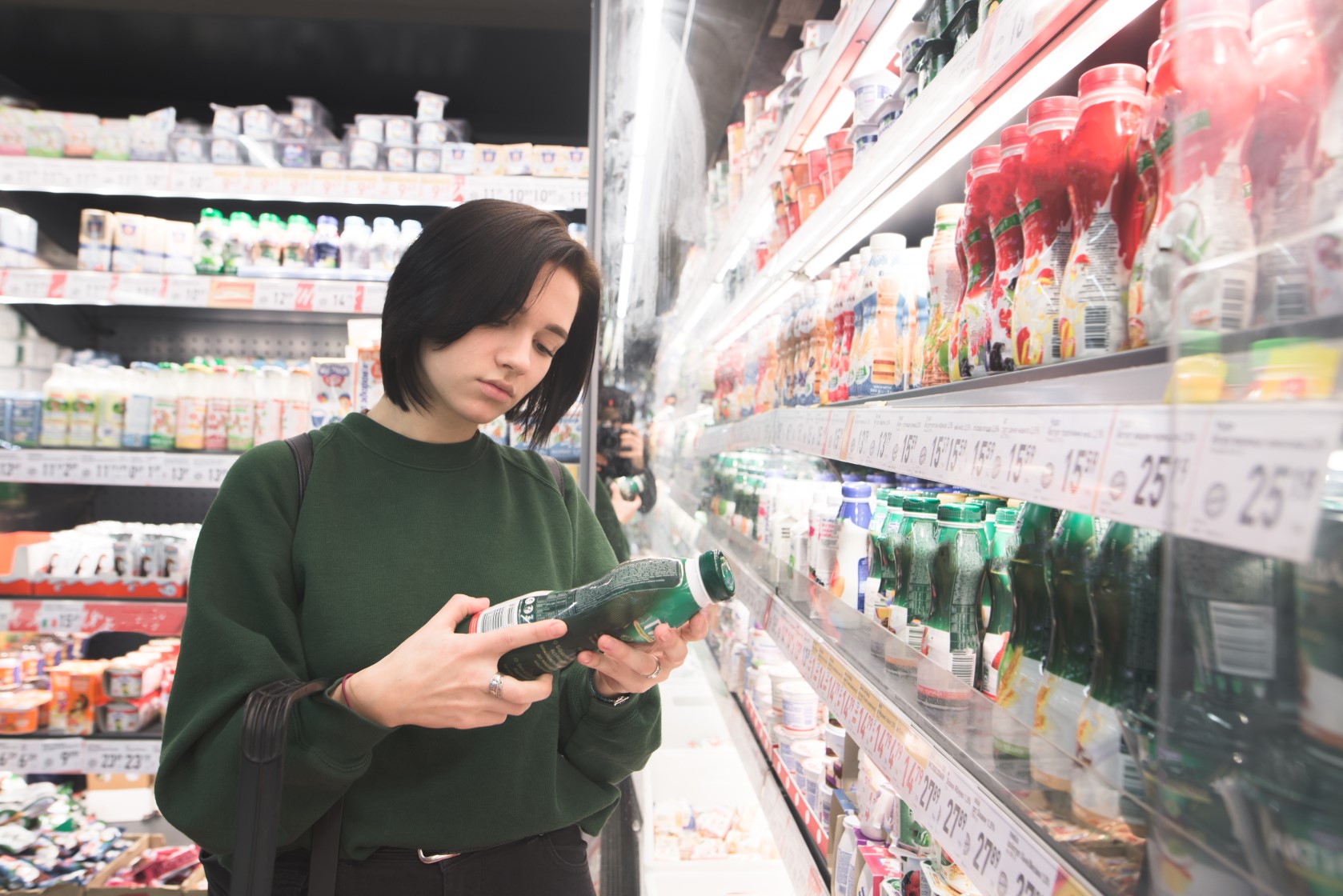When my PCOS symptoms were at their worst it felt like my hormones controlled my life. It was a terrible feeling; physically and mentally. I felt helpless. Once I learned that making some simple lifestyle changes could help balance my hormones naturally I stopped feeling helpless and started taking action.
I felt more confident and in control even though I wasn’t 100% symptom-free.
There are 3 key areas to start with when you are trying to balance your hormones. Your gut, insulin resistance, and environmental stressors. I have 10 tips for you to target each one of these areas with manageable, natural ways to balance your hormones.
Improve gut health for hormonal balance
A lot of people overlook gut health when we are talking about hormones, but most hormones are produced in the gut and eliminated in your gut. A happy healthy gut will help you create and eliminate hormones easier.
More variety into your diet:
Start putting more variety into your diet, especially if you can add in more fermented foods like kimchi, sauerkraut, and yogurt. These particular foods introduce new bacteria into your gut microbiome. A diverse gut microbiome is what you want if you want healthy hormones.
Eating a wide variety of plant foods will help diversify your microbiome too. So go to the farmers market and eat whatever is in season instead of going out and buying the same veggies and fruits over and over again.
Fast for 12 hours every day:
Some gut bacteria thrive and proliferate when your gut is empty. Keeping a daily 12-hour fast can improve gut health. It’s as simple as having your last meal by 7 pm and having breakfast at 7 am.
Eating organic:
Eating organic can help your gut health because the pesticides on your produce and in your animal-based proteins can wipe out some of the bacteria in your gut.
Eating organic can be tough if you live in a food desert or are grocery shopping on a budget. If you are going organic on a budget focus on what the environmental working group calls the dirty dozen. These are the most pesticide-laden fruits and veggies. I look at the foods we eat more often and make sure those are bought organic.
Reduce Insulin Resistance and other hormones will improve too
Both lean and overweight PCOS patience are at risk for insulin resistance. Insulin resistance is an intrinsic part of having polycystic ovary syndrome. It can be an underlying problem for other hormonal problems as well. You want to do everything you can to reduce your risk for insulin resistance and correct it when you already have it.
Strength training:
Recent research studies on people who have PCOS show that strength training was one of the most effective ways, on a long-term scale, to prevent and lower insulin resistance.
Strength training raises your metabolic rate by adding lean mass. Muscle mass consumes glucose at a higher rate and also needs more insulin. Thus keeping glucose and insulin out of the bloodstream and in your muscle cells where it belongs. Also, strength training is the best type of exercise for lower androgens (check out the video below for more information on that.)
Avoid added sugars and carbohydrates:
A simple way to get started on better nutrition and decreasing your insulin resistance is to pay attention to how much-added sugars you are consuming. Added sugars are not naturally occurring sugars that are found in whole foods like fruit. They are sweeteners added to processed foods. Examples are white sugar, coconut sugar, corn syrup, honey, and maple syrup.
You don’t need to over-focus on the sugars in fruits and vegetables, and natural foods. Instead, try to avoid added sugars. If you see a food that has anything over 9 grams of added sugars you really want to think twice about consuming it or only have a small serving. You really do not want added sugars to be a regular part of your diet.
Get enough sleep:
Sleep deprivation makes insulin resistance worse. People who do not get 7-8 hours of sleep each night are much more likely to become or already be insulin resistant.
Insulin sensitizing supplements:
Try using an insulin-sensitizing supplement, such as NAC (N-acetyl cysteine), Inositol (in particular a blend of 40:1 of D-chiro and Myo-inositol). Both have been shown time and time again to safely help women and people living with PCOS increase their insulin sensitivity.
I recommend Ovasitol inositol. Use the Provider Referral Code 130269 to get a discount. In the interest of full disclosure am an affiliate for Theralogix. I’m also just a fan of their products and good customer service.
Reduce Environmental Stressors
Environmental stressors are different than emotional stress, work stress, life stress – we are talking about things in your home and daily routine that actually stress and tax your endocrine system, which is the system that makes your hormones. You’ll want to start eliminating these elements in the places you frequent as they can cause hormonal disturbances in your body
Additives in your personal care products.
Your shampoo, laundry detergent, feminine hygiene products, lotions, can have endocrine-disrupting chemicals in them unless they are all-natural and organic. Some of those chemicals are actually antimicrobial, so they can impact your gut too. Sulfates and other endocrine disruptors are particular chemicals that get inside your body through your skin or through your mouth and they mimic your hormones and send signals back to your brain that can throw off your hormonal balance if you are exposed to enough of them.
An easy way to start eliminating these products is, as you run out of a personal care product, replace it with all-natural products. You can make simple switches like antibacterial soap to a castile soap, replace lotion with coconut oil or replace perfume with essential oils blends. Visit my amazon storefront to see what products I use.
Ditch plastic
Cooking your food in plastic is a bad idea. The chemicals in the plastics can leach into your food, in particular BPA, which is a petroleum by-product that mimics hormones when it is inside your body and throws off your natural hormone production. If you can, avoid eating out of plastic altogether, use glass and stainless steel instead.
Turn down the blue light.
Blue light is the light coming off your phones, TV, computer, and other screens. The blue light signals your brain to stay awake, which can mess with your sleep.
Blue light also stimulates cortisol which is another hormone people with PCOS struggle with. The goal is to have more cortisol in the morning, and for it to drop off as the day goes on. If you are exposing yourself to a lot of artificial light at night, you could be throwing off your natural cortisol levels. To reduce your blue light exposure at night switch your bedroom lights to low blue light bulbs, and limit your screen time. Try Seeking out new ways to entertain yourself once the sun goes down that do not involve screens, like reading, crafts, gentle yoga, or listening to podcasts.
You do have some control when it comes to balancing your hormones! By addressing gut, insulin resistance and environmental stressors you can balance your hormones naturally.







